Donors
Diamond: Over 100,000$
-
Open Society Foundations (OSF)

The Open Society Foundations (OSF) work to build vibrant and tolerant societies whose governments are accountable and open to the participation of all people. OSF seeks to strengthen the rule of law; respect for human rights, minorities, and a diversity of opinions; democratically elected governments; and a civil society that helps keep government power in check.
It helps to shape public policies that assure greater fairness in political, legal, and economic systems and safeguard fundamental rights. The Open Society Foundations implements initiatives to advance justice, education, public health, and independent media. Working in every part of the world, the Open Society Foundations place a high priority on protecting and improving the lives of people in marginalized communities. -
Ford Foundation
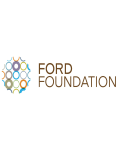
Ford Foundation is an independent, nongovernmental and nonprofit organization established with gifts by Edsel and Henry Ford. It is supervised by an independent Board of Trustees which sets general policy and delegates authority to the president and senior staff for the making of grants and for operations. Program officers in the United States, Africa, the Middle East, Asia and Latin America explore opportunities to pursue the foundation's goals, formulate strategies and recommend proposals for funding.
Those in charge of Ford Foundation believe all people should have the opportunity to reach their full potential, contribute to society, and have a voice in the decisions that affect them. They believe the best way to achieve these goals is to encourage initiatives by those living and working closest to where problems are located, to promote collaboration among the nonprofit, government and business sectors, and to ensure participation by men and women from diverse communities and all levels of society. The Foundation works mainly by making grants or loans that build knowledge and strengthen organizations and networks.
Gold: 50,000$ – 100,000$
-
The Lebanese Association for Educational Studies
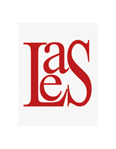
The Lebanese Association for Educational Studies (LAES) was founded in 1995 as a professional, non-political, non-profit organization. Its membership consists of academic scholars and researchers in the field of Education belonging to the various universities and academic institutions in Lebanon. The objectives of the association include: developing and disseminating educational knowledge; advancing the educational research community in Lebanon; interacting with similar associations in the Arab countries; and contributing to educational development in Lebanon and in the Arab countries.
It fulfills its objectives through research, study, documentation, publication and the organization of seminars and conferences. LAES has published more than 25 books in the field of Education. The association engages in activities and projects aligned with its objectives. It cooperates with various parties for the financing of such activities such as, among others, the Lebanese Ministry of Education and Higher Education, Ford Foundation, the UNESCO Regional Bureau for Education in the Arab States, the UNDP, the Institute of International Education and the World Bank. -
The Arab Fund for Economic and Social Development

The Arab Fund for Economic and Social Development is an Arab regional financial institution focused on funding economic and social development by financing public and private investment projects and providing grants and expertise. The Arab Fund's activities are characterized by a number of important aspects that make it a model of cooperation and Arab economic integration. It seeks to meet the development needs of member countries while maintaining balance and neutrality in pursuing its activities and ensuring feasibility and transparency in all its projects.
It also provides non-refundable aid and grants as a contribution to various fields of studies, institutional support and training, as well as support for emergency situations and circumstances faced by some member countries.
The main objective of the Arab Fund is achieving Arab integration and consolidating cooperation among the member countries. Priority is therefore given to financing joint Arab projects. Meanwhile increasing attention is being paid to social development programs and to combatting poverty. The Arab Fund finances projects in different sectors and provides grants to support educational institutions, universities and professional and social associations. It has also supported a number of Arab countries in countering the effects of natural disasters and wars. The Arab Fund collaborates and coordinates with Arab and international development institutions in various fields, including the study, financing and implementation of economic and social development projects in Arab countries.
Silver: 10,000$ – 50,000$
-
Charity fund of Late Abdul Razzaq Al-Sane
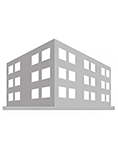
-
Mr. Mahmoud Abdul Khaleq Al-Nouri
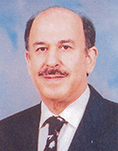
-
Dr. Faiza Mohammed Abdul Mohsen AlKharafi
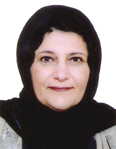
-
Al Ahli Bank of Kuwait

-
Kuwait Foundation for the Advancement of Science
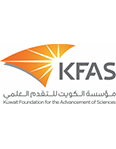
The Kuwait Foundation for the Advancement of Sciences was established in 1976 by an Amiri Decree under the direction of the late Amir of Kuwait, H. H. Sheikh Jaber Al-Ahmad Al-Jaber Al-Sabah. KFAS operations are funded by contributions from the private shareholding companies of Kuwait as part of their corporate social responsibility. The contributions currently amount to one percent (1%) of their annual net profit.
KFAS mission to “stimulate and catalyse the advancement of Science, Technology and Innovation (STI) for the benefit of society, researchers, and enterprise in Kuwait,” continues to be at the heart of all the Foundation’s activities and plans.
Since its creation, KFAS has successfully established a number of dedicated research and Educational centers of excellence in Kuwait. These are: The Scientific Center, Dasman Diabetes Institute, Sabah Al-Ahmad Center for Giftedness & Creativity, and Jaber Al-Ahmad Center for Nuclear Medicine and Molecular Imaging. These centers are recognized as world-class facilities and pioneering scientific research institutes.
In addition, KFAS has established Al Taqaddum Al Elmi Company, the Foundation’s publishing arm and most recently, KFAS Academy, an online university for continued education.
Looking forward, KFAS is continuing to contribute towards the creation of a rich scientific culture in Kuwait and to enable a sustainable and robust knowledge based economy. -
Mr. Adnan Abdul Aziz Al Bahar

-
Waqf of Late AbdulRahman Mohamad Al-Bahar

-
Kuwait Society for the Advancement of Arab Children (KSAAC)

The Kuwait Society for the Advancement of Arab Children (KSAAC) was founded as a non-profit organization in 1980. It aims to advance specialized knowledge in the development of early childhood education in the Arab world. The Society is also dedicated to the promotion of new scientific research on this stage of child development, as well as the development of analytical, diagnostic and technical tools in order to highlight areas which have so far been overlooked by governmental and educational organizations in contemporary Arab education.
KSAAC seeks to identify the factors and circumstances which can facilitate—or impede—the expansion of educational services to children in the pre-elementary stage. It also seeks to carry out research and studies in areas related to various aspects of children's psychological and social development. The Society sets out to study the feasibility of putting forth an Arab strategy for the education of children in their early years which would provide for proper health care and a healthy course of development. It also looks into more accessible ways to educate parents on how to deal with children and their upbringing. -
National Investments Company
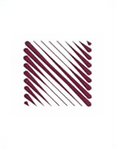
-
Arab Bureau of Education for the Gulf States
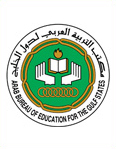
The Arab Bureau of Education for the Gulf States (ABEGS) represents the early beginning of collaborative action in the Gulf. It is a regional organization for education, research, and development, with a clear vision, a well-defined and comprehensive mission and a scientific, methodical mode of operation. The Bureau was founded in order to promote cooperation between the member states by decision of the Ministers of Education on Oct. 23, 1975. The mission of ABEGS is to operate within the member states to serve the educational, scientific and cultural goals as specified in its articles of association and in other laws and regulations issued by the General Conference.
It contributes to developing the work in these domains and seeks to achieve coordination, integration and unification as well as encouraging cooperation between the member states. These are: The United Arab Emirates, the Kingdom of Bahrain, the Republic of Yemen, the State of Kuwait, the Kingdom of Saudi Arabia, the Sultanate of Oman, and the State of Qatar. -
Lebanese National Commission for UNESCO
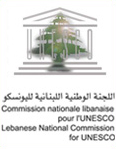
The Lebanese National Commission for UNESCO is a national body that liaises between the United Nations Educational Scientific and Cultural Organization (UNESCO), the Arab League Educational Cultural and Scientific Organization (ALECSO) and the Anna Lindh
In assuming the roles of liaison, consultation, and communication, and mobilizing and coordinating partnerships with the civil society, the Lebanese National Commission participates in the implementation of UNESCO, ALECSO and ALF programs and in the dissemination of their values and objectives. -
¼ Khayrat of Late Mohamed Abdulrahman Al-Bahar

-
Anwar Al-Nouri Prize for the best Doctoral Dissertation in Education in the Arab World
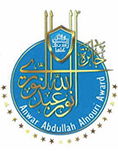
-
Mr. Sayer Bader AlSayer

-
Charity Fund of Abdulbaqi Abdullah Al Nouri
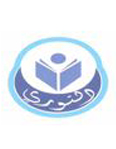
Bronze: Less than 10,000$
-
Al Baraka Banking Group

Al Baraka Banking Group (B.S.C) is licensed as an Islamic wholesale bank by the Central Bank of Bahrain, listed on Bahrain Bourse and Nasdaq Dubai stock exchanges. It is a leading international Islamic banking group providing its unique services in countries with a population totaling around one billion. It is jointly rated BBB+ (long term)/A3 (short term) on the international scale and A+ (bh) (long term)/A2 (bh) (short term) on the national by Islamic International Rating Agency & Dagong Global Credit Rating Company Limited, and by Standard & Poor's at BB+ (long term)/B (short term).
Al Baraka offers retail, corporate, treasury and investment banking services, strictly in accordance with the principles of the Islamic Shari'a. The authorized capital of Al Baraka is US$ 1.5 billion, while total equity is at about US$ 2 billion.
The Group has a wide geographical presence in the form of subsidiary banking units and representative offices in 16 countries, which in turn provide their services through over 700 branches. Al Baraka currently has a strong presence in Turkey, Jordan, Egypt, Algeria, Tunisia, Sudan, Bahrain, Pakistan, South Africa, Lebanon, Syria, Iraq, Saudi Arabia and Morocco, including two representative offices in Indonesia and Libya. -
UNESCO Regional Bureau for Education in the Arab States
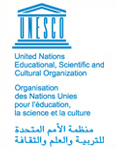
UNESCO Beirut is the Regional Bureau for Education in the Arab States. It serves 18 UN Member States in the Arab Region, as well as the Palestinian Autonomous Territories. Under the Education Sector's accountable decentralization arrangement, the Regional Bureau is responsible for setting goals and coordinating programs with strategic plans as well as leads the regional level interventions of the Organization in close consultation with the other field offices.
The Bureau pays specific attention to the educational needs of vulnerable and excluded groups, especially girls and women in poor and rural areas. It has been charged with providing expertise and technical support, fostering partnerships and setting standards in order to assist Arab States in building learning societies by creating educational opportunities for all communities, with a special focus on vulnerable and excluded groups.
UNESCO Beirut aims to facilitate the national educational development by assisting member states in addressing their national education development needs. In pursuit of this goal, UNESCO Beirut employs a wide array of strategies, including the monitoring and review of existing regional educational standards, and the building of institutional capacities to assist Arab states in equipping themselves to address the challenges they face.


